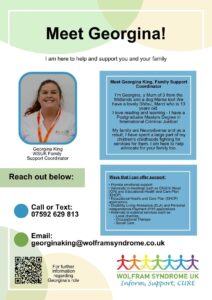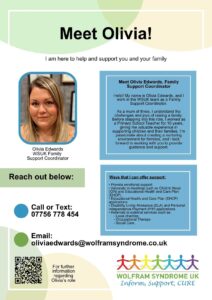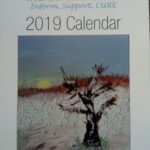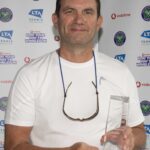Family Support


How our FSC’s support WS Families
At clinic
As part of our role, we help families with the specialist WS MDT clinics at Birmingham Children’s Hospital (BCH) that families attend typically every 12 – 18 months. We also help families who may be seen in at WS virtual clinic, which is generally every 12 – 24 months. We ensure families have all the information they need before attending clinic. We help families with logistical arrangements such as transport and accommodation during their time at BCH. Our goal is to ensure families have all they need to make their visit as stress free and pleasant as possible.
We personally attend each WS MDT clinic, and we are available to assist families throughout the time they are with us – the Sunday evening before clinic, at Ronald Macdonald House, on Monday and Tuesday during clinic and Monday evening if needed. We can provide both emotional and practical support such as assisting families on where to go, to attend their appointments at various departments within the hospital. The Sunday evening at Ronald Macdonald House is an opportunity for families to come together with the FSCs in an informal setting outside of clinic to ask questions and get to know other families.
Listening to families is at the heart of what WSUK does. An important part of our role is to gather feedback from families on their experience and opinions of the WS MDT and virtual clinics to help us and the BCH team provide the very best service that meets the needs of families. From time to time, we may also ask you to complete a short feedback survey on our family support service. A summary of your feedback is provided to the BCH team as part of our ongoing contract with the hospital.
In the community
Outside the clinic, we continue to act as an advocate for families. When a new family is referred to the clinic one of us will visit them at home, wherever possible, to find out more about their situation and how we and WSUK can best support them, and to answer any questions the family may have.
We can also help families access support locally and ensure they have access to the benefits that they’re entitled to. This can include help in securing the best support for their child at school, and ensuring the right provision is in place, or ensuring that they’re receiving all the benefits that they should be (for example universal credit, carers allowance and/or disability child premiums). We can refer/signpost families to external agencies such as SENDIASS, EHCP support, charities in their local area and sensory services. We can attend EHCP meetings and consultations with schools to help support the WS affected young person through their education. We can provide enhanced support to schools by delivering presentations that explain the challenges that WS presents to young people and individuals.
Further to both our roles in clinic and the community, we will also be available during the WSUK annual conference to meet families and answer your questions.
For more information about the Wolfram clinics at BCH, go to the ‘Clinic Dates and Information’ page on this site – https://wolframsyndrome.co.uk/clinic-dates-information/
News
Requests for flexible working if you are a working parent of a disabled child.
The Act defines a statutory request as a request for a change to an employee’s terms and conditions relating to their hours, times or place of work. The Code provides guidance for employers and employees on their legal rights, responsibilities and good practice in making and handling statutory requests for flexible working.
Acas Code of Practice on requests for flexible working (HTML version) – GOV.UK (www.gov.uk)
The Carer’s Leave Act
The Carer’s Leave Act has opened up many more possibilities for carers who are employed. These new changes will come into effect from the 6 April 2024.
See how this could help you by clicking here
Upcoming Events
The Royal Society of blind children has an activity calendar and access to assistive technologies please email: connections@rsbc.org.uk
Activity calendar: Calendar of Activities – RSBC
Over The Wall help children and young people reach beyond the boundaries of their health challenge. They offer both residential camps and Camp in the Cloud, which is their camp-at-home experience. All of their services enable their campers to build confidence by trying new things, creating friends, having fun and making lifelong memories!
To find out more go to their website here. To see the dates of their camps for 2025 click here.
Deliver a wish for your child/Young Person – I’m compiling a list of our young people to deliver a wish or dream for them. Please check out the link below to see if your family qualifies and get in touch if you would like me to make a referral to any of the services. https://www.disability-grants.org/holiday-grants-disabled-children.html. This site also provides information about grants for holidays for families with a disabled child.
Disneyland Paris Have you ever dreamed of going to Disneyland Paris? Please follow the link to an external charity Full the Wish, to register for a a chance to go. There is a strict criteria, you must not have received a wish before, and only parents can apply.
If you have any suggestions on how we can lead a more youth led service, please do get in touch.
Inspirational People
Let us introduce you to some inspirational people. Despite their health difficulties and disabilities, they have all still followed their dreams and overcome the barriers of disability that affect them. Click across the tabs to find out more.
Following your musical dreams with Wolfram Syndrome
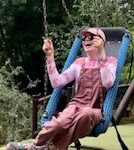
Meet Clara Steuart who has Wolfram Syndrome.
Wolfram’s affects Clara with Diabetes Mellitus, severely sight impaired, fatigue, sensorineural hearing loss, partial Diabetes Insipidus, and recently mobility issues.
Clara’s main instruments are the piano and saxophone, however she can play the didgeridoo too, which she taught herself.
Clara plays the saxophone at her local church, St Mary’s in Twyford, she plays as part of the Sunday service team twice a month. Clara also belongs to the school orchestra and takes part in Christmas concerts, Spring and Summer concerts and Remembrance services.
Clara has been attending general music classes since the age of 3 years old. She learnt to play the recorder all through junior school, and she has been learning the piano and saxophone for the past 5 years (with a bit of a hiccup due to Covid lockdowns).
Clara has an amazing private music tutor who has taught her to play by ear, as she hasn’t been able to see music for the past 3 years. He is also supporting Clara with her GCSE in Music.
Update – 24th June 2025
Clara has been offered a place as Saxophonist for the London National Open Youth Orchestra Ensemble! It was something Clara really wanted and was nervous waiting to hear. She will shortly receive her rehearsal dates and musicians agreement and will start in September.
Below is a video of Clara playing ‘This is Me’ on the piano at Waterfall House.
Information sourced from Mum Nicola. Words are Nicola’s own.
Being Artistic and enjoying boxing with a Vision Impairment
Meet Jennifer Lynch who has Wolfram Syndrome.
Jennifer has an extreme version of Wolfram Version. She is affected by Diabetes Insipidus, Neurogenic bladder, Diabetes Mellitus, severely vision impaired, hardly any vision remaining, mobility issues, ASD, mobility issues, memory issues.
Jennifer has always enjoyed arts and crafts. She made badges and gift cards to sell at school. Using Acrylic paints and other textured materials she created a variety of paintings which were used to make a WSUK charity calendar in 2019 along with a Christmas card design and bookmarks. All sold to raise funds for WSUK.
As Jennifer’s vision deteriorated she changed her way of painting to ‘messy painting’ blending colours and shapes on the canvas using brushes and paint rollers.
In 2023 Jennifer’s painting style has changed again. She is now producing art pieces using fluid/pouring paints. Jennifer can be involved in this by choosing the colours, helping to pour them into the cup and then pour the paints over the canvas before starting to tip the canvas to move the paints over it. These paintings she has created are all unique pieces, as they can’t be re-created, and are all for sale on the shop page on this website, with a video of Jennifer creating her artwork. Wolfram Syndrome UK
Just because Jennifer’s sight has failed it hasn’t stopped her creating art and doing the other things she loves such as cooking and boxing.
Jennifer started boxing 2 years ago when she started to attend the gym at her Day Services. She would look forward to these sessions twice a week and got her own set of gloves and mitts for her birthday in 2022. She has been known to do a 160+ punches in 60 seconds. The person wearing the mitts also gets a good workout to ensure that Jennifer’s punch meets the mitt each time.
Written by mum, Tracy Lynch.
Being a Black Belt in Ju Jitsu is my dream. I won’t stop until I get all the way to the top!
Bringing martial arts to life.
Meet Mohammad Saif Zulfiqar who has Wolfram Syndrome.
My name is Mohammad, but everyone calls me Saif. I have been attending Ju jitsu since I was 9 years old. I go to two different classes. One class I go to every week and one every other week. Because of my hard work and determination, I am now a black belt in Ju Jitsu. I have to wait until I turn 18 until I can get the second half of my grading to have the full black belt.
I like Ju Jitsu very much, the teachers are kind, and they understand me. I am severely sight impaired and hearing impaired. But that doesn’t stop me. I go to Ju Jitsu with my dad and my mum is very proud of me.
I enjoy getting out and doing it, my sight impairment has never stopped me from getting my black belt. Here are some photos of me, that I am really proud of.
Information sourced from Saif and Mum, Tahira.
Keep Calm and Carry on: Jay’s inspiring path.
Meet Jay Jenkins who has Wolfram Like Syndrome
Jay is 13 now and was born with bilateral/profound hearing loss. By the age of 2 he lost all of his hearing and was bilaterally implanted (cochlear implants)
We were unsure as to why Jay was born deaf so agreed to have genetics involved from an early age which has taken almost 8yrs to get to the bottom of.
Jay was registered as vision impaired at the age of 6, he has bilateral stellate cataracts and bilateral optic neuropathy.
Jay was diagnosed in December 2024 with Type 1 diabetes. He is now on an insulin pump after 6 months of injecting insulin.
Diagnosed early 2025 with Sweets Syndrome, presenting with skin lesions to his lower limbs, joint pain, swelling and stiffness.
Diagnosed early 2025 with Wolfram Like Syndrome (heterozygous WFS1c gene variant – de Nero variant)
Each diagnosis has brought a grief cycle with it. Why him! I will never know the answer to that question but we move forward every day, taking each day as it comes.
Jay is now in year 8 of a mainstream comprehensive school with a hearing and vision impaired unit attached (a 30mile round trip journey each day) and is doing amazing. It’s taken a lot of battles, heartache and knock backs to get him to where he is today.
Jay is a green belt in taekwondo (he’s actually stopped doing that now as he didn’t want to fight against girls!)
He’s a level 6 swim England swimmer, previous to his diabetes and sweets syndrome he played in a local football and basketball team. It was his decision to give them up as the pain and lesions from the sweets syndrome got too much for him.
In August 2024, Jay was nominated and won an Outstanding Award at County Durham Youth Awards. The Judges also decided to present Jay with the Anne Jackson Award, an additional accolade created in memory of Anne Jackson, a supporter of the Youth Council which recognises young people who show a special commitment to others. Jay has since become an active member of County Durham Youth Council.
We’ve just recently celebrated his 11th hearing birthday which we do every year.
Jay has in the past year joined the combined cadet forces within his school and he absolutely loves it. He’s recently completed a 2-day fire arms training course and has had his 1st 24hr field exercise where he learned skills of putting a tent up, polishing his boots and many more tasks required to get him through the training exercise. We had a few issues with his blood glucose levels and he was quite upset that he couldn’t take part in some of the activities due to this but it’s been a learning curve for him. In June this year he will complete a full week’s training at an army barracks and he will be away from home for the full week. Although in the future, he won’t be able to join any of the forces due to his diagnosis’ the future for Jay is today and tomorrow and each day as it comes.
He was given the opportunity to go to Paris on a school trip last year, he was very keen to go but then his insecurities of his diabetes got the better of him and pulled out of the trip. His confidence has been at the lowest point that I could never have imagined but I will never give up on being his number 1 cheerleader. He has put his name forward with school to hopefully go to New York in late 2026, even if he doesn’t get a place as they are limited, the fact that his confidence has given him hope that he can do it, without me, is inspiring.
He has input from the local authorities educational Phycologist and is currently undertaking a drawing and talking therapy course in school to help improve his confidence and allow him space to express his emotional health and wellbeing without me present. He has the best support in school and has an EHCP which I fought tooth and nail for but we got there in the end.
I wanted (with Jays permission) to share his story with parents and children/young people who are maybe recently diagnosed with Wolfram Syndrome, just to show his determination and that there’s hope for everyone going through what he is going through. Jay is and will always be my “hearo”
Don’t give up, your child/young person and you are worthy and deserving!!
Being a pop star with diabetes.
Diabetes is a health condition that affects the blood sugars and how the body breaks down insulin.

Meet Nick Jonas, a 30 year old singer/songwriter from America. Nick is one of the Jonas brothers who had success with hits such as “What a man gotta do” and “only human”.
Nick developed Type one diabetes as a teenager, being formally diagnosed at age 13. Nick says there were 4 main signs that lead him to going to the doctors and they were weight loss, excessive thirst, frequent urination and irritability.
He and his brothers have set up a charity foundation called Change for the Children, raising money and awareness for childhood diabetes.
Nick also cofounded the charity Beyond Type 1.
(Information sourced from: Type 1 Diabetes: Nick Jonas Says He Had These Four Symptoms (healthline.com) and Nick Jonas – Wife, Age & Facts (biography.com)Information correct at time of writing).
Ever wonder what it is like to act with a hearing impairment?
Having a hearing impairment doesn’t have to mean you can’t become an actor! Being deaf in one ear hasn’t stopped Millie.

Having a hearing impairment doesn’t have to mean you can’t become an actor. Being deaf in one ear hasn’t stopped Millie.
Meet Millie Bobby Brown a 19-year-old actress. You may recognise her in hit films such as Godzilla and Enola Holmes, she also had the lead female role in the Netflix series Stranger Things.
Millie opens up about her hearing loss in an interview in Variety magazine. The actress was born with a partial loss in one year, that has slowly over time faded to a complete loss. Although Millie can not fully hear herself on stage, she in undeterred and will continues her dream at being an actress.
Millie has been nominated for an Emmy and won a number of other awards including the Nickleodeon Favourite TV actress two years in a row and Favourite Movie Actress too.
Millie also sings! Which is no great feat when you can’t hear yourself.
In her spare time, Millie supports Unicef and is looking forward to becoming an ambassador so she can support and give back to people less fortunate to her.
(Information sourced from: Stranger Things’ Millie Bobby Brown joins list of celebrities opening up about hearing loss | Hearing Like Me and Millie Bobby Brown – Wikipedia Information correct at time of writing).
Being deaf hasn’t stopped Evie from being a poet and competition winner!
Meet Evie one of our young people with WS and cochlear implants.

After discovering Evie suffered from hearing loss and a deterioration of her hearing, Evie now has cochlear implants and has had them for two years. Evie has documented the journey to getting cochlear implants on her Instagram page My.cochlear.implants. This is a private page and you will need to request permission to access it. Evie also entered the Y9-Y11 Worcestershire Poet Laureate competition with the poem “Scars of sound” available below. The poem was so incredible it won first place! Well done, Evie!
It’s not just poems and English literature Evie is proud of; she was also trialling for the Women’s deaf football team! Evie is a keen sportswoman and loves to play football and attend football games with her dad, who is a real football hero too!
Evie is currently studying for her A levels locally in the hope of attending University to study architecture. Being deaf has not been a barrier to Evie achieving success in her chosen subjects.
We wish her all the best in the future and hope she will share some of her journey and work with us too!
(Information sourced from: Mum, Dad and Evie, aged 16).
Scars of sound- By Evie West
They are a reddish hue in colour.
faint but visible to the naked eye,
weaved and intercrossed with thread
a day I so fearfully anticipated with dread.
They do not make me shed a tear. Nor cry
but are instead a reminiscence of my story.
The battle I fought to hear again;
they are my scars, my scars in all their glory.
My scars of sound. Till’ the end
of
forevermore
my spirit dances with them;
lifts up my heart. And soars.
To be gifted my magic ears,
was worth the scars-
Almost ethereal. A planet like Mars.
Spinning, spinning. Vertigo is winning-
My head laced in white, plasters shall be off tonight-
oh’ my scars.
My scars of sound.
The beauty fills you,
with Earth’s most utmost splendour,
Never fails to astound.
The queen of scars is crowned.
Have courage, I was told.
By all those, young and old-
But how. Could they ever know?
How much it terrified me,
to think
I could live
or go.
I wear my scars with dignity, complete pride;
They make me complete; laced on either side;
a part of me that shall never forsake;
they remain, with all their hurts and aches,
a momentary flashback;
the injection of the cannula;
barely audible, a grunt of pain.
Outside, God sent down his rains.
Pitter
patter.
Darkness.
Sudden light.
My scars show my fight.
And I’ll love them
-for all my life.
Content will be added shortly. Please keep checking back.
Meet the blind content creators that are making YouTube more accessible!!

Meet Molly Burke, a 29 year old content creator from Canada.
She developed retinitis pigmentosa at age 4 which left her virtually blind by 14. Along with developing accessible content, Molly is also a disability rights activist and motivational speaker. She even has a guide dog called Elton John. Molly released an audiobook on her life experiences of being blind in 2019 called “It’s not what it looks like”.
Molly has just under 2 million subscribers.
(Information sourced from Wikipedia & Content Creators who are Blind and Visually Impaired — World Services for the Blind (wsblind.org) information correct at the time of writing 10th February 2023).
World Tennis Champion for the IBSA World blind sports games 2023.
“Never in a million years did I think I would get to Wimbledon” (Neil Balmforth, 2023)
Meet Neil a 52-year-old retired father, with a visual impairment that has taken the tennis world by storm.
Originally an employee for Liverpool County council for 27 years, where he spent 17 years as a lifeguard instructor, Neil just “fell” into tennis! Having been a keen sportsman in his younger years, once retired Neil took an interest in VI tennis and now he is a champion!
He says his success is from having strong encouragement around him, his positivity and positive outlook on life and his willingness to give anything a go! His advice to young people is to try everything! You don’t know what you might enjoy.
Neil began losing his sight aged 19 due to a rare genetic disorder called Ushers Type 2A. It has been a slow deterioration which has led to the early retirement of his full time job within Liverpool as a lifeguard instructor. Undeterred from his visual impairment, Neil started playing VI tennis around 6 years ago and quickly progressed through the ranks to his current defending champion position.
Impressively, not only is Neil visually impaired but he is also hearing impaired and wears dual hearing aids on the court so to unable him to hear the sound ball. This is a unique tennis ball that is used to locate the ball on the court.
Liverpool VI tennis centre holds monthly sessions delivered by the British Blind Sports association, please get in touch if you would like any more information on this.
(Information sourced from: https://audioboom.com/posts/8355581-ibsa-world-blind-games-2023-neil-balmforth-gb-vi-tennis-player
https://www.lta.org.uk/news/national-visually-impaired-tennis-champions-crowned-in-wrexham/ – Interview with Neil October 2023).
Helpful Information for Families
DLA – Is your child on the right level of DLA? Did you know, you may be entitled to the High Rate Mobility.
The High rate mobility element on DLA is paid to children with a severe vision impairment and visual acuity of 6/20. Please get in touch with your local ophthalmologist who will be able to discuss your child’s visual impairment and whether you qualify for this element. Please see A-Guide-to-Disability-Living-Allowance-Factsheet.pdf (dls.org.uk) page 6; or Contact’s DLA Advice page for information.
Use the free cerebra guide to complete your DLA application form Disability Living Allowance (DLA) – Cerebra
PIP –
is your child approaching 16? You may be transferred to PIP soon! You may want to start gathering evidence of your child’s care needs to support your transfer to PIP. Local Citizen Advice Bureau’s offer a service to help. www.citizensadvice.org.uk/benefits/sick-or-disabled-people-and-carers/pip/help-with-your-claim/your-assessment/
Carers –
Did you know you are entitled to a carer’s assessment. Under the Children and Families Act 2014, if you are a parent carer of a disabled child under 18 you are entitled to a carer’s needs assessment. Contact your local authority for more. Find your local council – GOV.UK (www.gov.uk)
If your child has a sibling they may be eligible for the young carer’s project. Young Carer’s supports siblings in families where there is a child or adult with a disability. Check out Young Carers and apply your local authority. Young carers | Action For Children
Family fund Grant – You can apply for a Family Fund grant if you are the parent, or carer, of a disabled child and you meet our eligibility criteria. The easiest way to apply is online, through our family portal.
Transition to Adult Services FAQ – A panel of WellChild (the national charity for sick children) Transition Specialist Nurses and experienced parents answer questions parents often have about transitioning from children’s to adult services.
Post 16 –
As some of you head into post 16 education in September, these handy resources are aimed at helping you identify your pathway and where to go next.
Post-16 Pathways – Resources | GROWS
If you are struggling after diagnosis and the realisation of your child’s sight loss, this resource from RNIB helps to navigate some of those feelings.
Diagnosis and Emotional Wellbeing | RNIB | RNIB
We also have information on our website that may be helpful:
New Parent’s Clinic Pack
This pack contains some helpful information and maps ahead of your first clinic visit with your child or young person.

